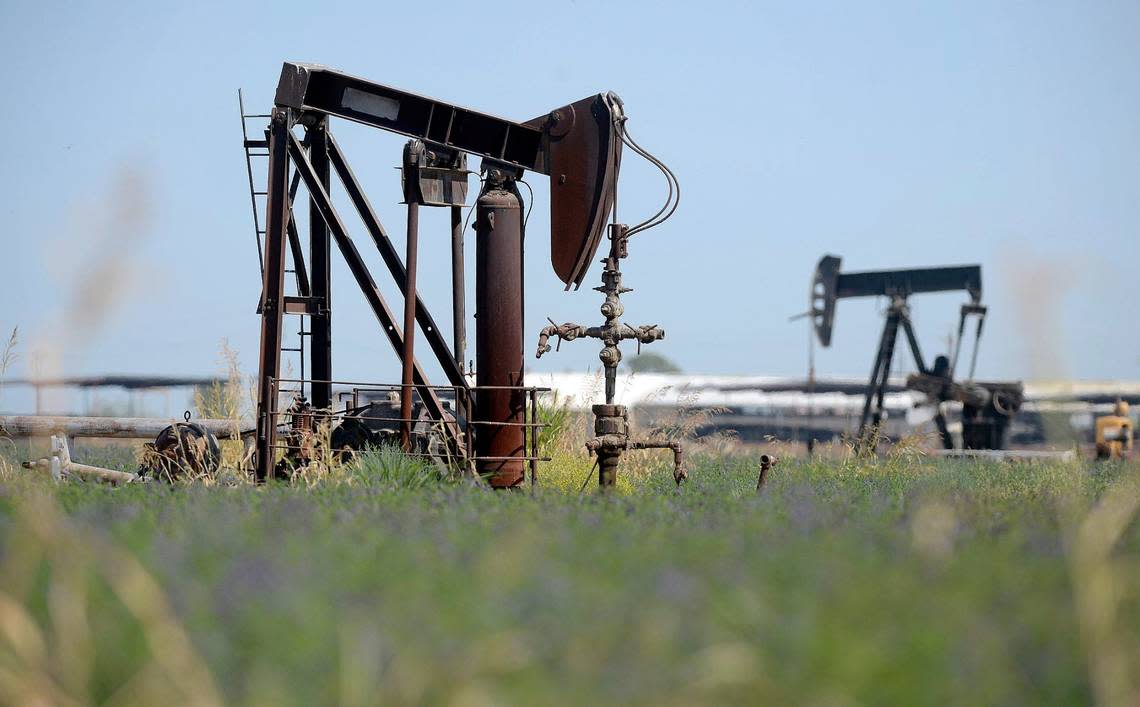Why are California gas prices rising again? Here’s what Gov. Gavin Newsom’s oil czar says

- Oops!Something went wrong.Please try again later.
Gas prices are creeping higher in California once again — and a recently appointed state oil czar is trying to get to the bottom of why.
Today, a gallon of fuel costs $5.78 on average in California. That’s 22 cents higher than last week, according to the latest prices from AAA, and 52 cents more than a month ago. It’s also higher than during last year’s spike that sent lawmakers into a special legislative session to address oil price gouging, when the cost rose to about $5.52 a gallon.
After some five months of relatively stable prices, why is the cost of fuel spiking again? A newly created watchdog group provided some preliminary answers Friday afternoon.
The Division of Petroleum Market Oversight, established early this year within the California Energy Commission as part of Senate Bill X1-2, released an interim update on the state’s gasoline market.
Lawmakers created the division to watch over oil markets for possible illegal activity and granted its recently appointed director, Tai Milder, access to new internal market information.
Based on that data, Milder pinned the recent price spike on three factors:
▪ An increase in global crude oil prices due primarily to Russia’s invasion of Ukraine.
▪ Decreased oil supply due to in-state refinery outages and maintenance.
▪ A single, isolated trade on California’s real-time “spot market” for gasoline that quickly caused a 50-cent-per-gallon price spike.
In a letter to Gov. Gavin Newsom, Milder called the single transaction “unusual” and said it may be a result of the underlying structure of California’s gasoline market. He also criticized refiners for failing to maintain adequate inventories of refined gasoline.
“When demand is high in the summer, under supply can quickly lead to soaring prices at the pump,” Milder wrote, adding: “It is not an exaggeration to say that one trade likely cost California drivers many millions of dollars at the pump.”
The trade in question happened Sept. 15, Milder wrote, and was the only trade reported that day. Milder’s letter did not identify the parties involved in the trade.
Severin Borenstein, director of the Energy Institute at UC Berkeley’s Haas School of Business, said the letter signals that California’s latest oil transparency law is bringing new information to light.
With just two firms producing a combined half of California’s gasoline, and five producing 90%, Borenstein said, firms’ decisions can move the price of gas — and they know it. But he thinks it could take Milder and his small team a year, maybe more, to understand the full picture.
“This is demonstrating that the division is getting going, and they’ve already uncovered some information,” he said. “But I don’t think this letter suggests we are ready to say anything definitive about what’s actually driving this.”
Both Borenstein and James Sweeney, a professor with the Stanford Institute for Economic Policy Research, were part of a group of experts that advised lawmakers to increase oversight, transparency and investigations into oil refiners and retailers.
“Agencies don’t master the data and skills in this short of a time,” Sweeney said. “I don’t think they have a full understanding of what data they need to be getting from the oil companies to fully understand California’s gasoline market. But I think they’ll make it eventually.”
The division will continue to analyze market data using the new market monitoring and analytical tools provided through SB X1-2, the letter said. Milder described the tools as “critical levers” that will help “identify any market abnormalities and inefficiencies.”
The letter follows last week’s lawsuit filed by Attorney General Rob Bonta against major oil companies on the grounds that they misled consumers for decades about their products’ role in contributing to climate change.
“We will no longer be left in the dark as private traders and corporate interests make record profits while Californians foot the bill,” Newsom said in a statement Friday afternoon. “We’ll continue using our new tools to hold Big Oil accountable and shine a light on these operations that have, until now, functioned in the shadows.”

